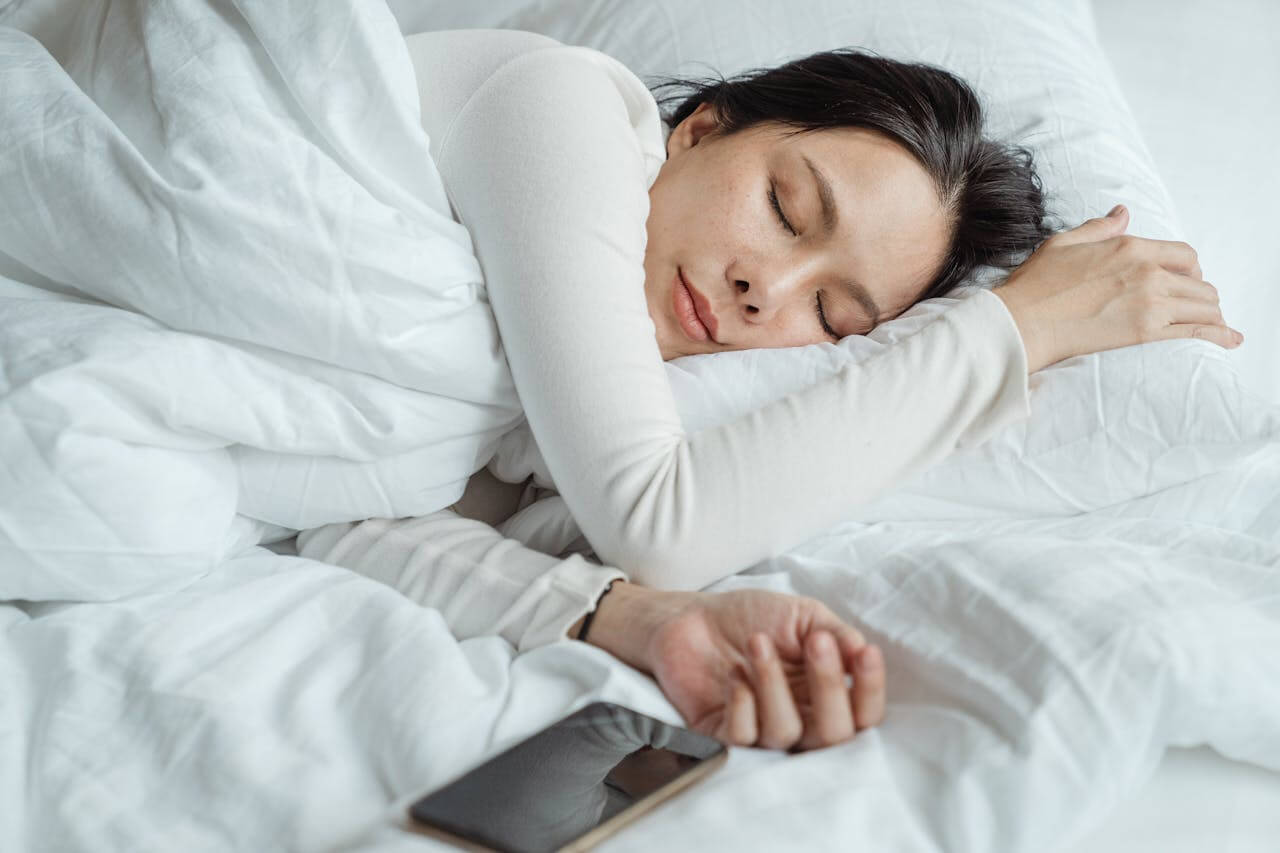Sleep and mental health: What’s the connection?
One fascinating thing about the human body is how interrelated our systems are. What we eat affects our mood, our gut health affects our brain health, and our sleep quality influences our energy, emotions, and mental wellbeing.
Yet, in the busy and chaos of modern life, we tend to forget how much our body relies on these connections. Sleep, in particular, is one of the first things we sacrifice, whether for work, social commitments, or the constant pressure to do more.
Quality sleep is a basic need, not something to be earned after pushing yourself to the limit. Below, we’ll explore the connection between sleep and mental health and what happens when you don’t get enough rest.
1. Sleep enhances emotional regulation
Quality sleep helps stabilise your emotions. You’re more resilient to emotional ups and downs when you’re well-rested, and you’re better equipped to handle different feelings throughout the day.
What if I’m sleep-deprived? Your emotional control weakens, making you more prone to mood swings and irritability.
2. Reduces anxiety and stress
One of the best benefits of REM sleep is reduced cortisol or stress hormone levels. Well-rested individuals are better equipped to handle everyday pressures and stress.
What if I’m sleep-deprived? Lack of sleep keeps the nervous system in overdrive. Chronic sleep deprivation can also lead to sleep anxiety, where stress about sleep itself prevents rest.
3. Boosts mood and reduces risks of depression

Quality sleep helps maintain the balance of neurotransmitters like serotonin and dopamine in your brain. Sleep also plays a role in how your nerve cells communicate with each other, which affects your mood.
What if I’m sleep-deprived? Long-term sleep deprivation is linked to depression. A study found that 75% of depressed patients also suffer from insomnia and 40% of young depressed adults have hypersomnia.
4. Strengthens memory and learning
Your brain strengthens neural connections and consolidates information during sleep. This consolidation stage helps with cognitive function and memory retention. What’s more, it helps you wake up feeling mentally refreshed and ready to absorb new knowledge.
What if I’m sleep-deprived? You may struggle with brain fog symptoms like forgetfulness, slowness in processing information, and being easily distracted.
5. Sharpens decision-making and judgment

Your brain organises your experiences during sleep, which refines your critical thinking skills and helps you make well-reasoned decisions.
What if I’m sleep-deprived? Poor sleep leads to poor judgment and impulsive behaviour. Studies even suggest that fatigue-related impairments due to lack of sleep are similar to impairments due to alcohol intoxication.
6. Enhances creativity and problem-solving
Well-rested minds are more creative, innovative, and better at thinking outside the box. Sleep supports the formation of new neural links, which can lead to new or creative ideas.
What if I’m sleep-deprived? Creative thinking suffers. Also, because poor sleep results in low energy and brain fog, you might struggle to think through any challenges effectively.
7. Improves social interactions

Quality sleep enhances empathy and emotional intelligence. Plus, being well-rested often results in a positive mood, which is a key ingredient for positive social connections.
What if I’m sleep-deprived? A study proved that lack of sleep makes people less willing to help others. Sleep-deprived individuals are also often irritable, which can make social interactions difficult or unintentionally push others away.
8. Increases resilience to life’s challenges
Emotional and mental resilience require clear thinking and emotional regulation—both of which are strengthened by quality sleep. When well-rested, you’re more adaptable to adversity and can recover from challenges more quickly.
What if I’m sleep-deprived? Problems feel more overwhelming, and coping with stress becomes harder. If this happens consistently, it can lead to anxiety and burnout.
9. Reduces risks of burnout
One of sleep’s most essential benefits is its role in preventing physical, mental, and emotional exhaustion. It allows the brain to recharge and reset, which helps prevent burnout.
What if I’m sleep-deprived? Burnout becomes more likely. Persistent exhaustion can drain your motivation, lower your productivity, and create a sense of emotional detachment from activities you once enjoyed. Burnout can also lead to depression.
10. Helps process trauma and emotions
REM sleep can help in processing emotions and traumatic experiences. While more studies are needed to understand thoroughly how this happens, existing studies suggest that sleep supports recovery from PTSD.
What if I’m sleep-deprived? Lack of REM sleep can worsen PTSD symptoms, heighten anxiety, and lead to more frequent distressing thoughts.
11. Lowers risk of mental health disorders

Quality sleep, along with other healthy self-care habits, is a strong preventive factor against mental health disorders. For those already living with a condition, consistent, restful sleep can help them manage their symptoms.
What if I’m sleep-deprived? Chronic sleep deprivation contributes to a person’s vulnerability to mental illnesses. Research also suggests that poor sleep can trigger episodes in individuals with bipolar disorder.
12. Strengthens the immune system and mental health connection
Our immune system and mental health are closely connected. When one is compromised, it can negatively impact the other. Since sleep affects both, prioritising rest can help strengthen your immunity and promote mental wellbeing.
What if I’m sleep-deprived? Poor sleep is associated with a weakened immune system, increasing vulnerability to illness and stress.
Prioritising sleep can be life-changing, especially for individuals who are vulnerable to or already diagnosed with a mental health condition. If you consistently struggle to get quality sleep, consider speaking with a therapist or a sleep medicine specialist.







